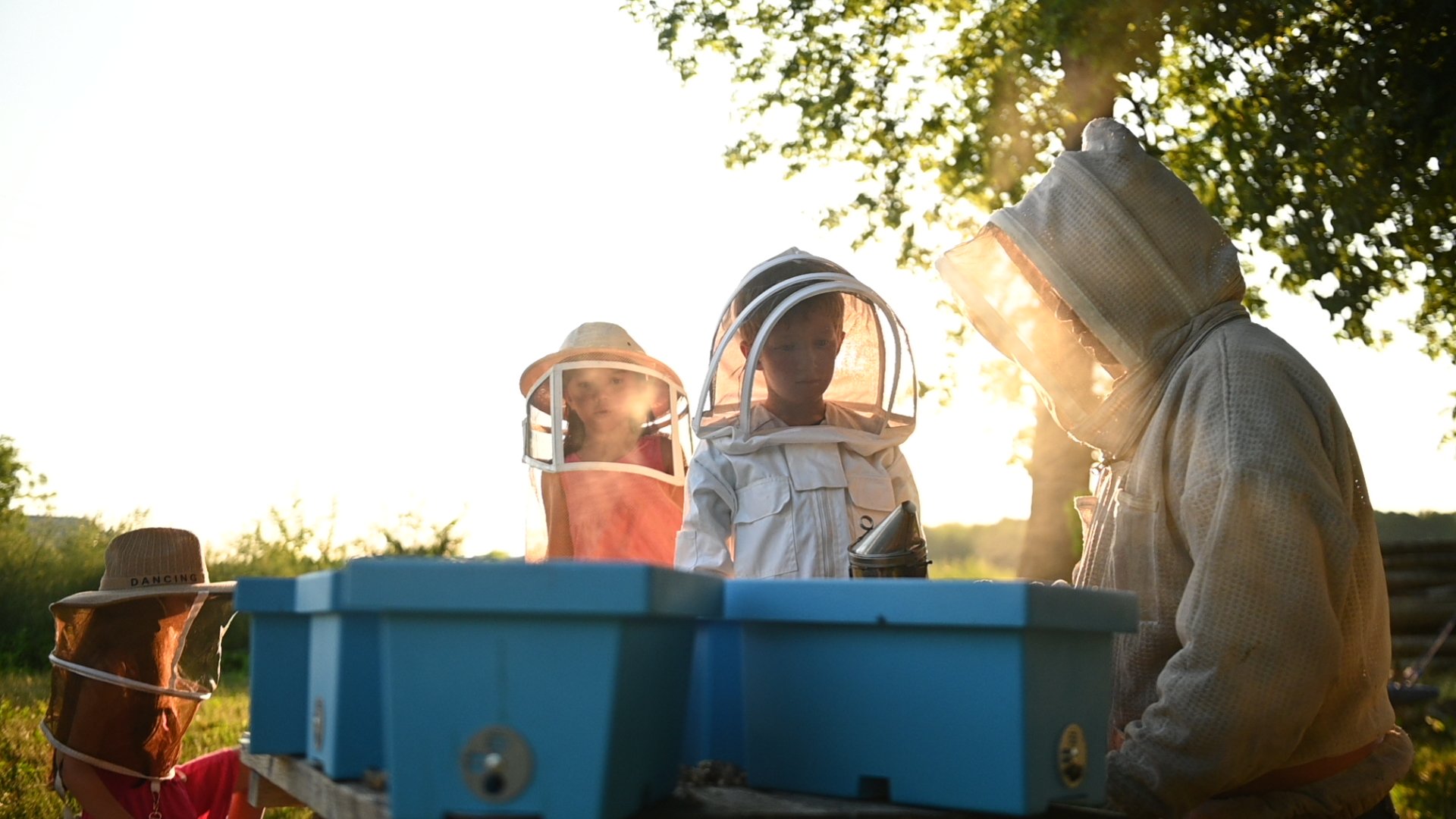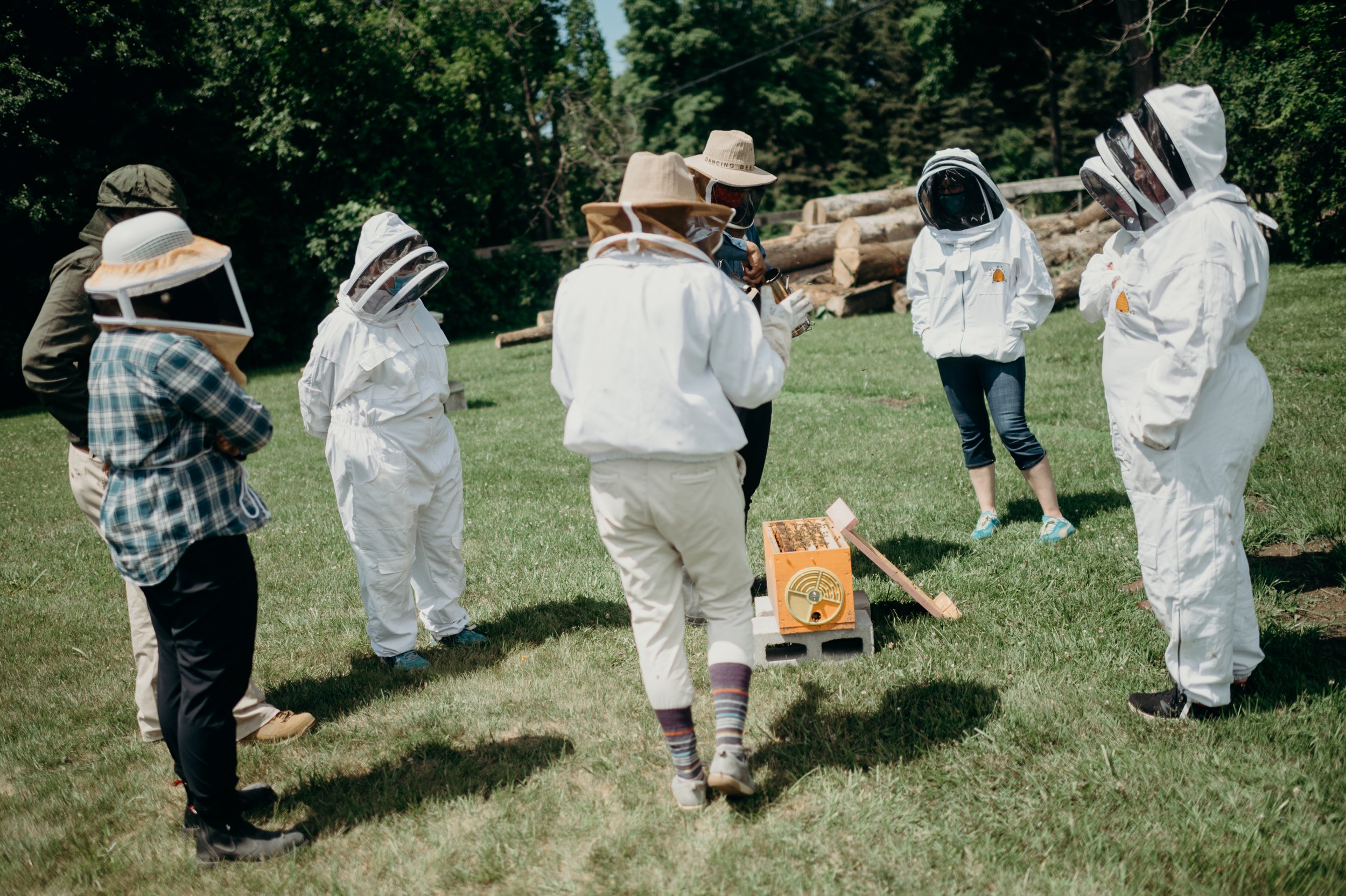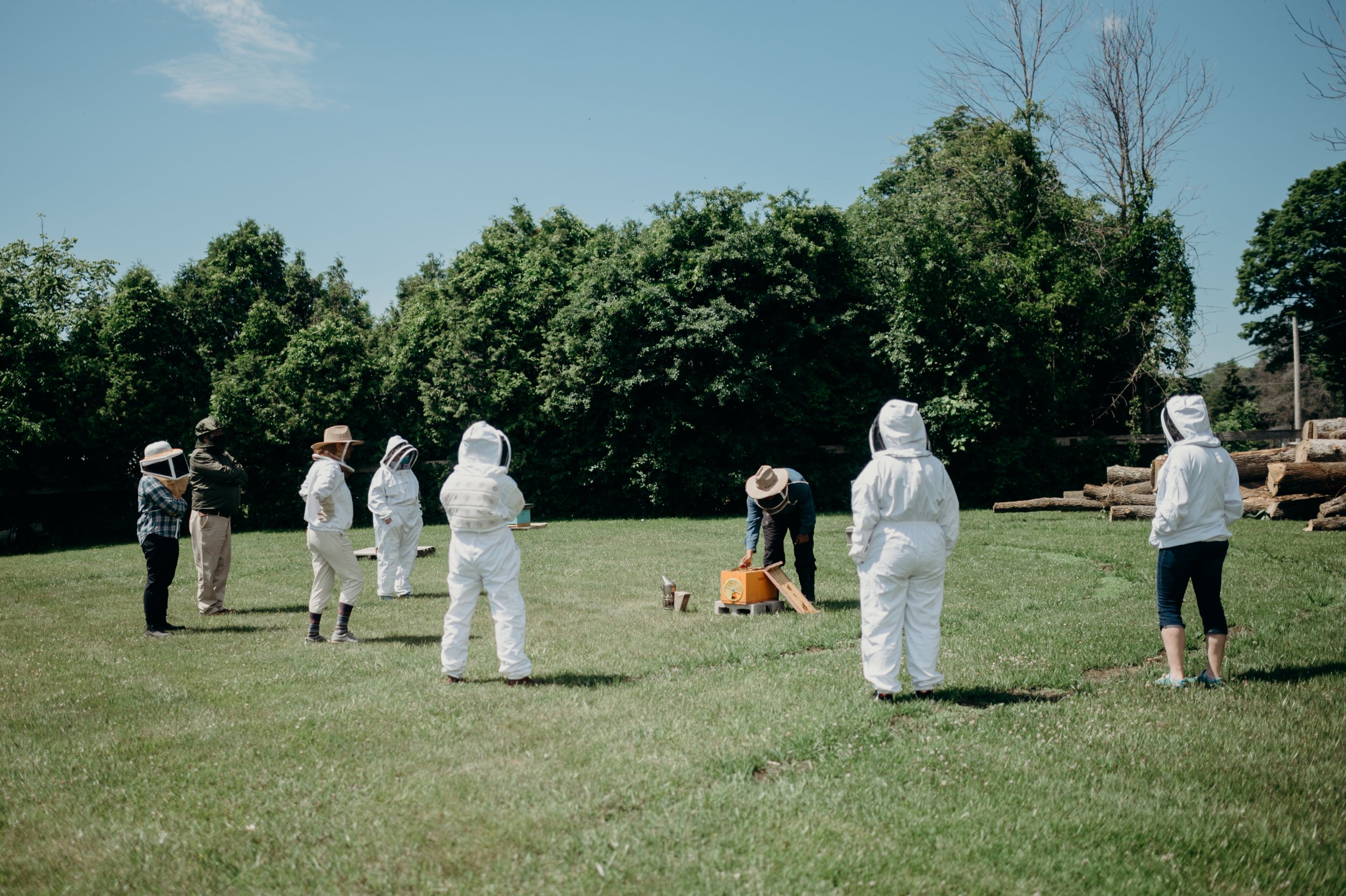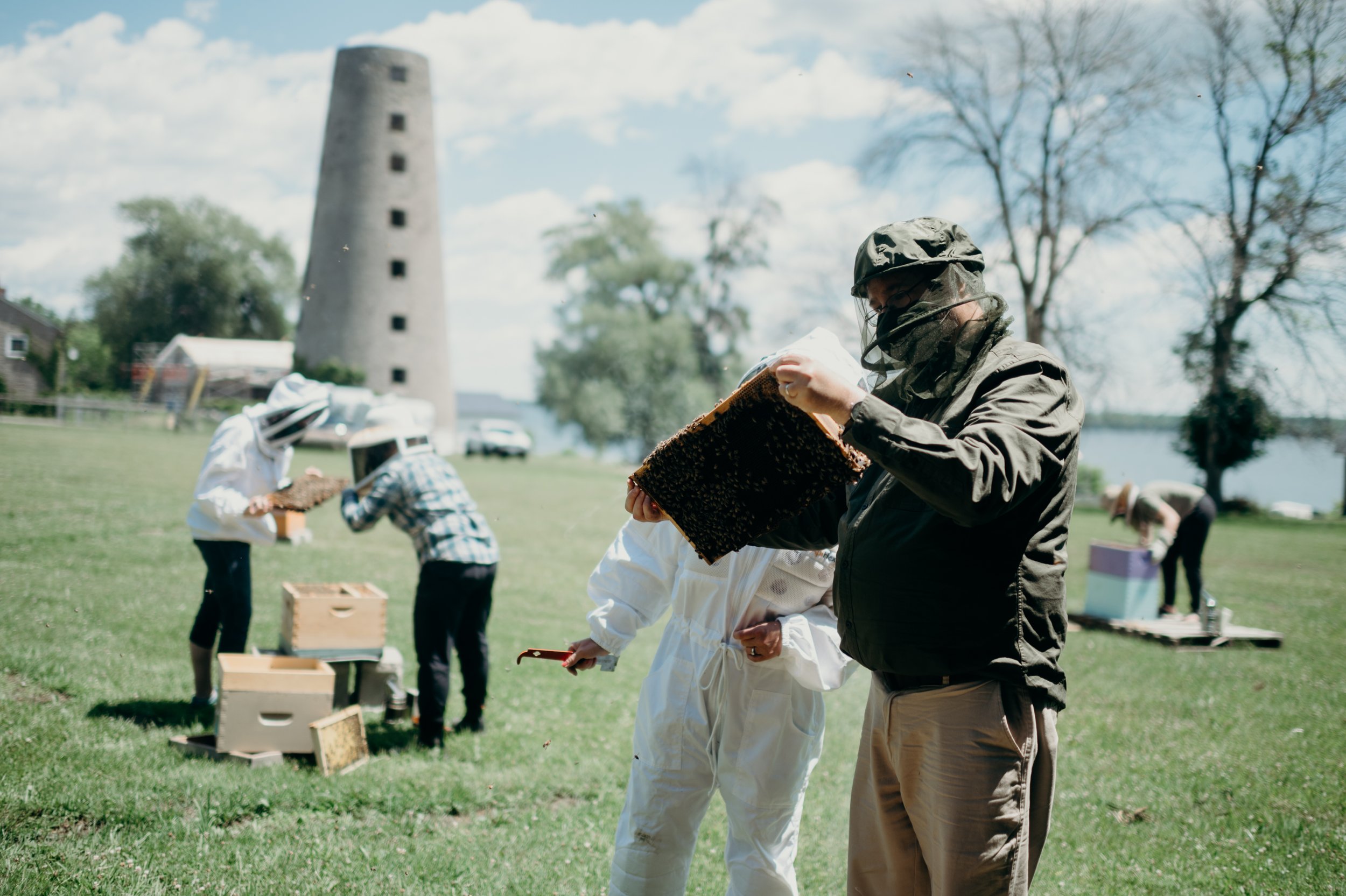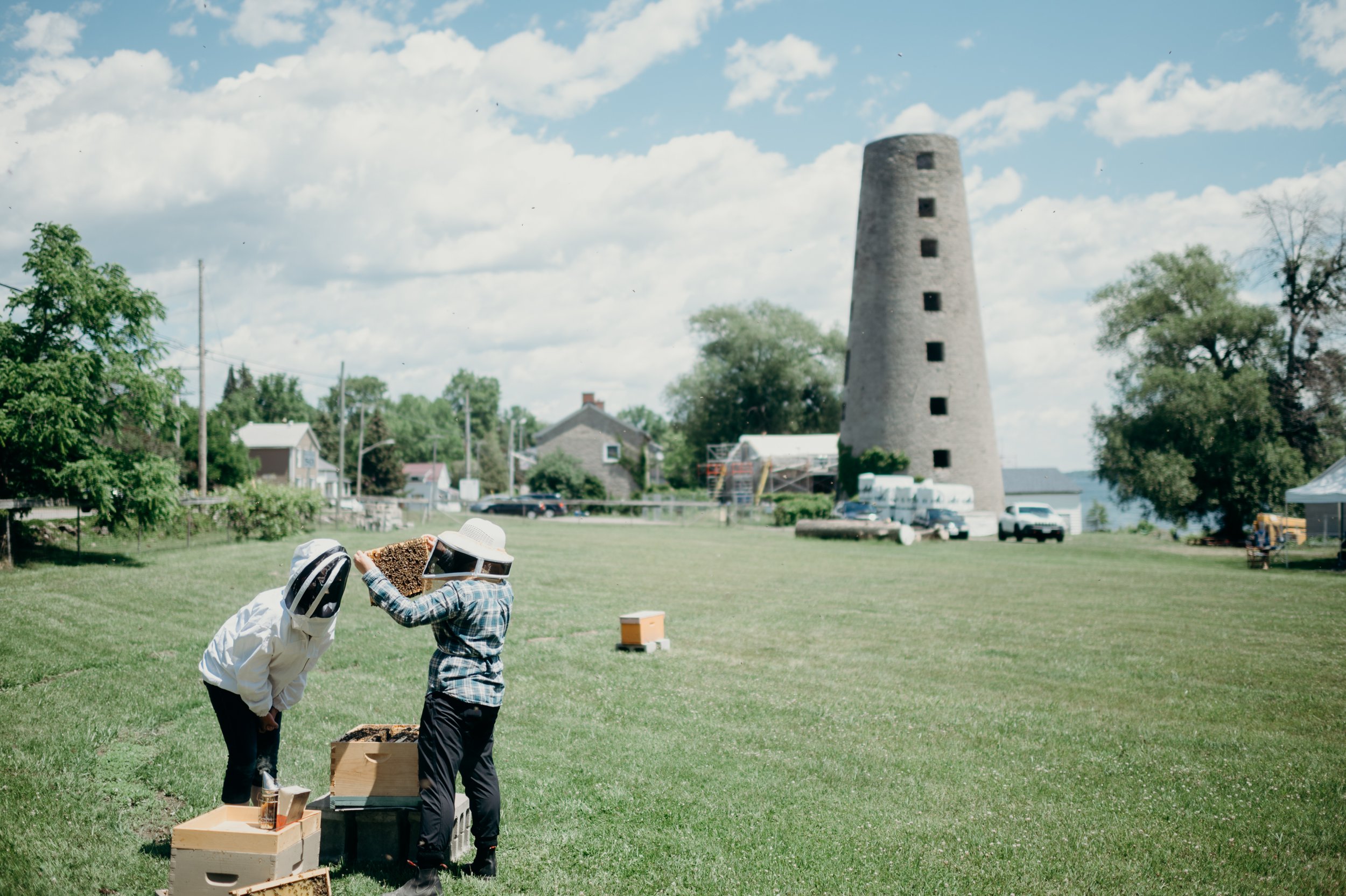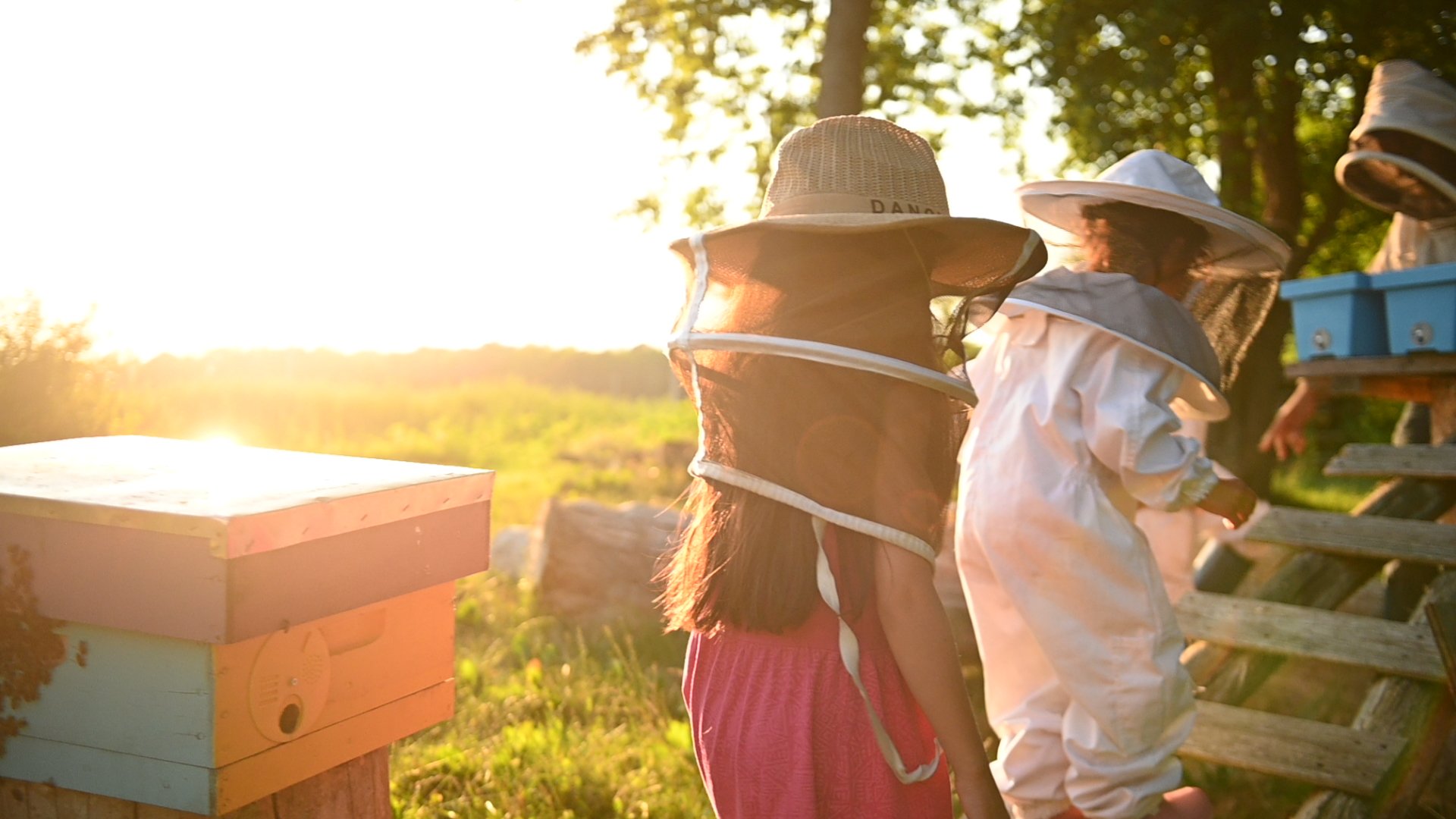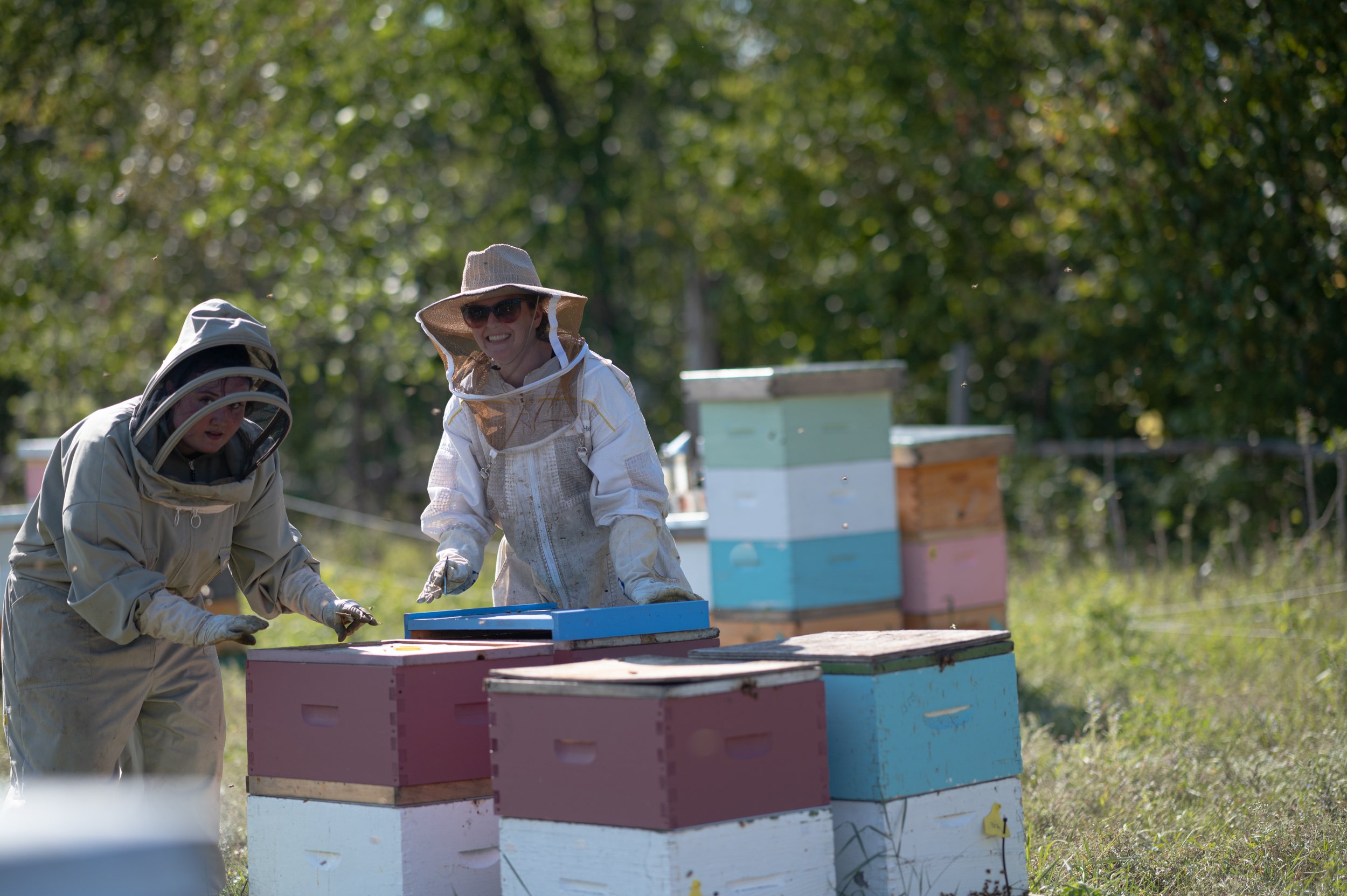2025 Introductory to Beekeeping Course - Classroom/Field Hybrid
We will again be offering our popular introductory beekeeping course to get you started in this fascinating and worthwhile hobby.
Our course will consist of both classroom and hands-on learning, to give you the necessary theoretical knowledge and also hands-on competence in your observational skills and handling of bees in the yard. We are confident that our course will give you a terrific foundation in your beekeeping journey!
Course Dates
The evening sessions will be the following dates:
Tuesday, March 18, 2025 from 6-9pm
Tuesday, March 25, 2025 from 6-9pm
Tuesday, April 1, 2025 from 6-9pm
Fieldwork day is tentatively set for:
Saturday, June 7, 2025 from 9am-1pm (weather-dependent; will be rescheduled as necessary)
COURSE CONTENT
The classroom component of the course will encompass the following topics:
Honey bee biology
Queen, workers, drones
Communication methods
The bee lifecycle
Seasonal cycles
Beekeeping equipment
Parts of a hive
Management options - Single or double, top-bar
Working in the bee colony
Components of a hive inspection
Adding honey supers
Notetaking
Bee pests and their treatment
Varroa mite lifecycle and management
American Foul Brood, European Foul Brood, Nosema, Chalkbrood
Wax moth, Small hive beetle
Troubleshooting queen issues
Swarming and supercedure
Introducing a new queen
Laying workers
Drone layers
Beekeeping responsibilities through the year
The beeyard component will be encompass the following topics, to reinforce good beekeeping practices and to build confidence with working a hive:
Hands-on guided hive inspection, including:
Smoker use
Handling of frames
Identification of types of bees
Stages of brood development
Working through the frames
Recognition of “signs” of a queen-right colony
Recognizing other colony irregularities
Assessing varroa levels
Alcohol wash
Sugar roll
Handling and introducing a queen (practicing with drones!)
Feeding options and demonstration
Winter wrap types and demonstration

